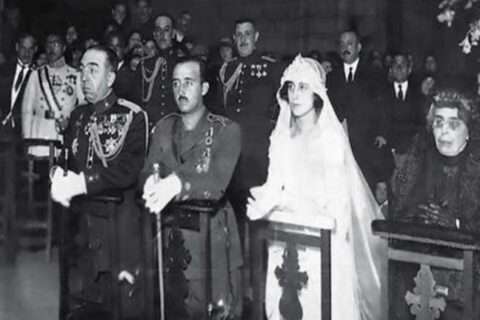The demonic act of pederasty was not all-encompassing among the Ancient Greeks, as some might proclaim.
There were quite a few noteworthy detractors (only to name a few):

We don’t know the exact percentage of those involved in sodomy, pederasty, and similar acts, but it’s almost certainly embellished to an extraordinary degree by modernists who desire to make it seem as a normal cultural custom of the time to degrade the ancients and justify their own depravity.
It happened, just like it happens today, but is in no way an indication of a natural proclivity to the act. It is as far from the natural order as possible. As Plato said, it is “contrary to nature”.
Even worse, our modern pedophiles appeal to these practices in Ancient Greece as a justification for their reprobate actions today. This, even though the acts were usually localized to a specific place and social class (usually elites, unsurprisingly), also during a specific time period. They act like all of these city-states were monolithic and unchanging. The Greeks had hundreds of city-states over vast periods of time, not all were alike. Some were Moloch driven, some were not.
Modern reprobates also try to link ancient pederasty to modern pedophilia. You can find an example of this on the NAMBLA page where they discuss pederasty, which I do not recommend reading unless you are in a satisfactory position to be enraged and break things. Another is in a TEDx talk that has been watched nearly a million times. This approach is deceitful. Even given the horrible nature of historical pederasty, the ancients still met an age of consent, which would have been teens (at least 16) and beyond puberty. Still far too young, and any homosexuality regardless of age is contrary to nature, but the modern pedophiles try to deceitfully use this practice as a justification for sexual attraction to children. The ancients never fetishized pre-pubescent boys like the modern reprobate would have us believe.
The ancients were no more or less pedophiles than other time periods. Neither were they more or less homosexual or other forms of sexual depravity.
Their city-states follow our own cycle. During certain degenerative periods, the ancients were more proud and tolerant of this sexual degeneration. Much similar to our own time today. Unsurprisingly, for the Greeks, the amount of pederasty almost always corresponded with the decline of each city-state. The closer it got to decline, the more of it was permitted and allowed.
And throughout the entire timeline of civilization—no matter the stage of the cycle—there were always dissidents that resisted it. As the above image demonstrates.
Be like them.

A Christian, husband, father, and American dissident. Join him in seeking truth and sipping sweet tea during the collapse of the American Empire. You can find more of his work at hiddendominion.com. Eph. 5:11.






There’s a greatly in-depth video about this very subject by Leather Apron Club on YouTube. To simplify one of the points made, the word “lovers” is incorrectly used by defenders and propogators of the LGTV agenda. A lot of Greek words are not thoroughly and properly translated into English – an example is the word “praus” in the original Holy scriptures written in Greek which is translated into “meek” in English. Praus refers to the restrained nature of a wild horse, which contains the power to wreck havoc but chooses not to – a far cry from the word “meek” which conjures up the mental image of a spectacled doobus turning the other cheek before being shoved in a locker. Anyways, when the Greeks refered to the relationship between the older tutor and his young male pupil as “lovers”, they did so in reference to their love of pursuing knowledge and the quasi-familial love that arises between a teacher and student. There was nothing sexual about it, and tutors who did take things to that level were ostracized if they were extremely lucky – most others got off far worse. This isn’t a sufficient explanation, so do check out aforementioned video.
Great recommendation. Thanks Brohammad.
There’s a greatly in-depth video about this very subject by Leather Apron Club on YouTube. To simplify one of the points made, the word “lovers” is incorrectly used by defenders and propogators of the LGTV agenda. A lot of Greek words are not thoroughly and properly translated into English – an example is the word “praus” in the original Holy scriptures written in Greek which is translated into “meek” in English. Praus refers to the restrained nature of a wild horse, which contains the power to wreck havoc but chooses not to – a far cry from the word “meek” which conjures up the mental image of a spectacled doobus turning the other cheek before being shoved in a locker. Anyways, when the Greeks refered to the relationship between the older tutor and his young male pupil as “lovers”, they did so in reference to their love of pursuing knowledge and the quasi-familial love that arises between a teacher and student. There was nothing sexual about it, and tutors who did take things to that level were ostracized if they were extremely lucky – most others got off far worse. This isn’t a sufficient explanation, so do check out aforementioned video. h
You got to that Leather Apron Club video before I could, Brohammad. Yep, the LAC is a great channel, with many interesting thoughts on things.
And thanks for a very good article, Kaisar!
New one up at the blog, btw.
There’s a great video on YouTube about this topic:
https://www.youtube.com/watch?v=BNAT4ybsz_E